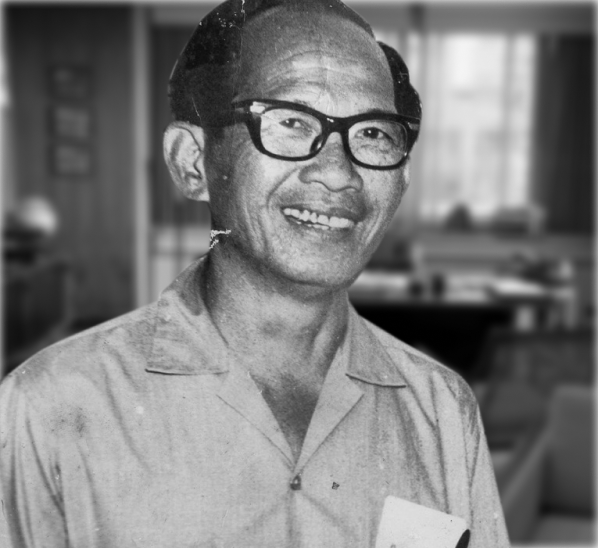- SILVINO ENCARNACION, a tailor by trade who then was Barrio Lieutenant, and his wife, ROSARIO, a public elementary school teacher, accepted the challenge, gradually enlisting responsive neighbors.
- Starting in May 1960 with 17 members and 73 pesos in cash deposits, the Bantug Community Cooperative Credit Union now has 181 members and Php26,447.52 in assets.
- SILVINO and ROSARIO ENCARNACION are proving that regardless of how modest an individual’s circumstance and discouraging the condition of his community, these can be altered.
- The RMAF Board of Trustees recognizes their wise management of a credit cooperative that soundly improves life in their low-income barrio, without incurring bad debts.
Progress in any rural community begins with the people themselves mastering the art of saving their modest funds and using them productively. This is true in Asia today as it was in Germany 104 years ago when, after failing to generate results with charity, Frederick Wilhelm Raiffeisen founded the first credit union among the depressed and starving of Heddesdorf. Like the 28 English pioneers who started the Rochdale consumers union, these cooperatives appealed to elemental human nature: linking self-interest to community betterment. As cooperatives have grown, so has economic democracy.
Despite this promise the Philippines, like many Asian lands, is littered with the wrecks of mismanaged cooperatives that spawned popular disillusionment. It was against this handicap that Angel Mandac of the Philippine Rural Reconstruction Movement labored when he first came to Barrio Bantug in 1960 to arouse interest in a credit union. SILVINO ENCARNACION, a tailor by trade who then was Barrio Lieutenant, and his wife, ROSARIO, a public elementary school teacher, accepted the challenge, gradually enlisting responsive neighbors.
Starting in May 1960 with 17 members and 73 pesos in cash deposits, the Bantug Community Cooperative Credit Union now has 181 members and P26,447.52 in assets. Neither the largest nor the wealthiest among credit unions in the Philippines, it is distinguished by its integrity and creativity. Most consequential are the changes members are prompting in their barrio of some 4,000 inhabitants. From chronic habits of dependence and borrowing from moneylenders to pay for illness, baptisms, rice until the next harvest and even gambling debts, Bantug is progressing as residents learn to save and plan ahead. With capital from their own “bank,” members of the credit union finance small businesses, improve their houses, pay tuition for children attending college and invest in better seeds and fertilizer. All of this was made possible by careful management of cooperative funds and emphasis upon productive loans based on the borrower’s character.
SILVINO and ROSARIO ENCARNACION are proving that regardless of how modest an individual’s circumstance and discouraging the condition of his community, these can be altered. With associates in the Bantug credit union they are showing that barrio folk can be encouraged to learn new habits releasing them from old limitations to build the decent life all seek.
In electing SILVINO and ROSARIO ENCARNACION, treasurer-manager and chairman of the credit committee, respectively, of Barrio Bantug Community Cooperative Credit Union, Munoz, Nueva Ecija, to receive the 1968 Ramon Magsaysay Award for Community Leadership, the Board of Trustees recognizes their wise management of a credit cooperative that soundly improves life in their low-income barrio, without incurring bad debts.
At this hour, I cannot find the words to describe the happiness that fills my heart. God willed that I be with all of you at this commemoration of the 61st anniversary of the late great father of the Philippines, Ramon Magsaysay.
Not even in my dreams did I expect that I would one day be accorded an honor and a prize such as this. We, in the barrios, extend help to our townmates with no hope for a reward. I now realize that even a poor man who does something good has a chance to be given recognition and a prize.
I give my heartfelt thanks to the family of the late President Ramon Magsaysay, to my townmates, to my fellow countrymen, and to all those who helped us reach the summit of honor and success.
I pray to God that I may make useful everyday the life and strength He gave me, in our town, our province and our country, so I may be worthy, and so I may peacefully retire to the home meant for me by the Supreme Maker.

